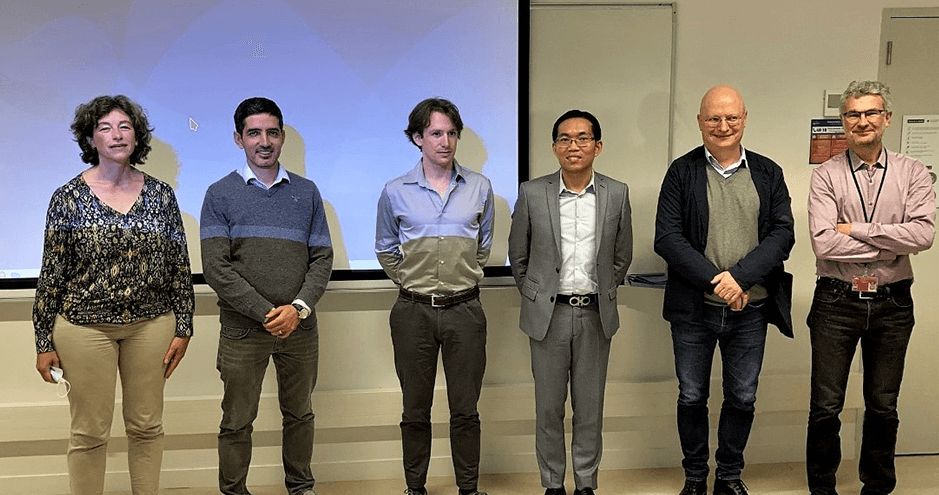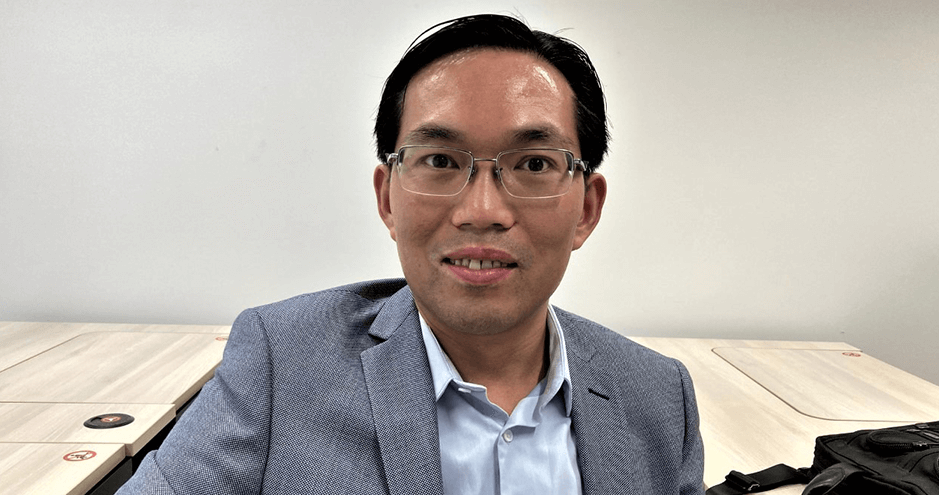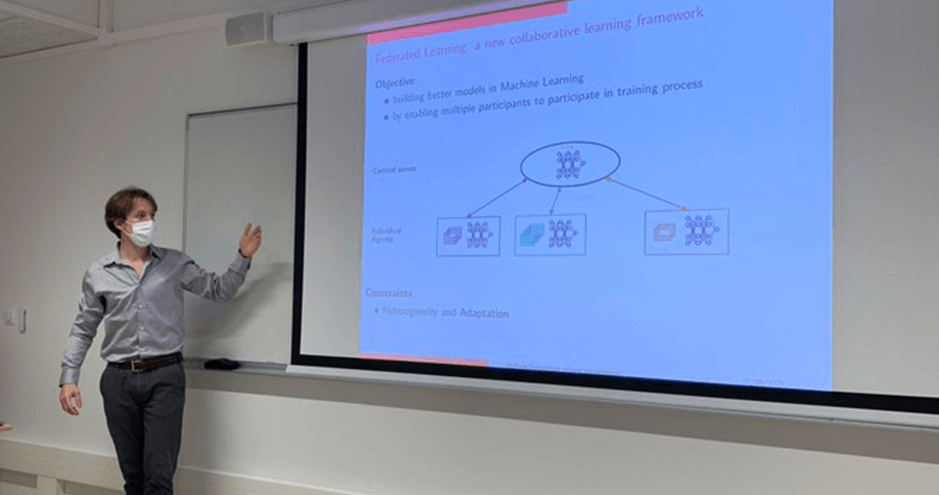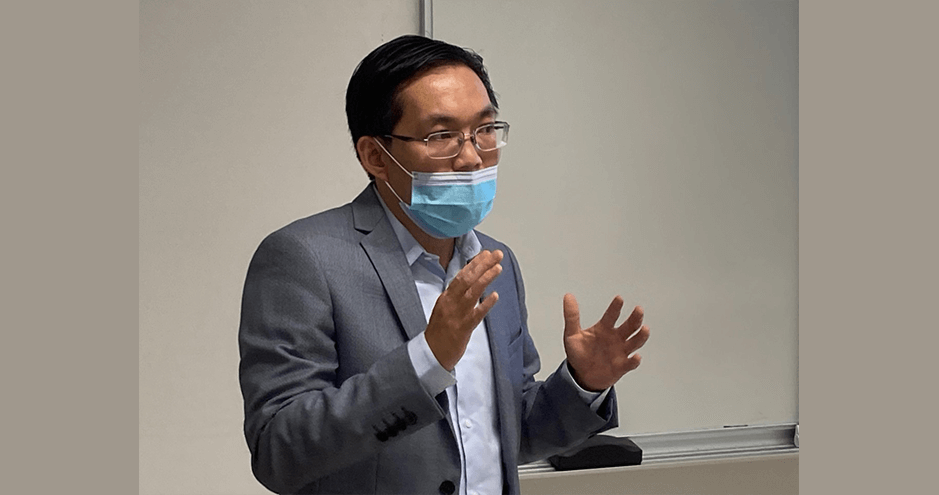Hi! PARIS Unveil First Five Fellows Devoted to AI Research
Telecom Paris was the informal setting for the September 27 launch of five major AI fellowship projects. These will explore groundbreaking concepts ranging from state-of-the-art computer graphics to the impact of algorithms on consumer behavior. The award-winning researchers shared their aspirations for a three-year program designed to catapult their work towards European Council Research (ERC) support within three years.
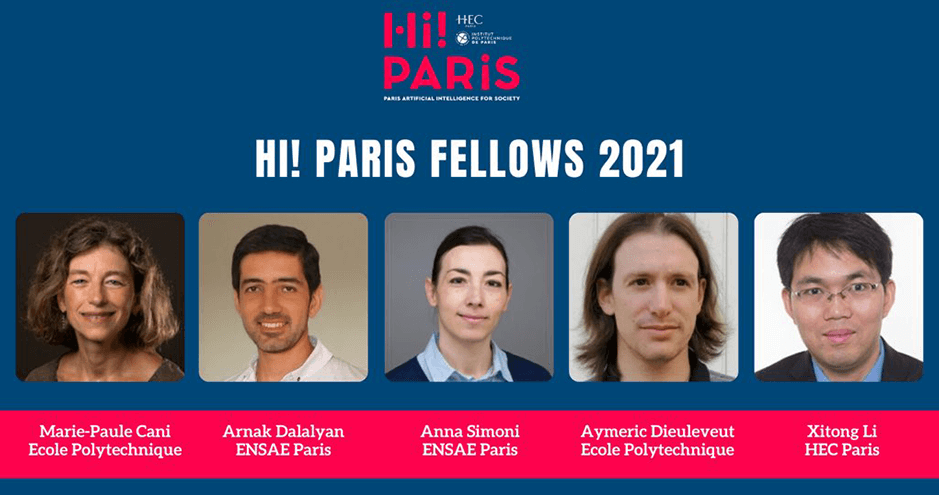
The new Center on Data Analytics and Artificial Intelligence for Science, Business and Society – abridged to Hi! PARIS – is progressively putting in place ambitious programs designed to rival with the world’s best. A year after its successful launch, the Hi! PARIS Center has already organized a hackathon, a PhD summer school and a data bootcamp, recruited dozens of researchers and cobbled together a popular series of webinars - all part of a drive to make it a global pole for AI research and teaching. “This has been an intense but exhilarating year as we brought together our partners and researchers around a project that we are convinced will put the Saclay plateau on the AI map,” said Nicolas Vieille. He’s the program’s co-scientific director and Professor of Economics at HEC Paris. “Crucially, we’ve worked hard to make our research accessible to our corporate donors, Kering, L’Oréal, TotalEnergies, Rexel and Capgemini. This is building up at a good pace.”
To this end, a committee of 10 international specialists began in January 2021 to sift through the candidacies of 30 top researchers from HEC Paris and IP Paris seeking financing for a three-year project linked to AI and data. Four of the five fellowship winners came together under rainy skies in Palaiseau to describe their research and ambitions to a hybrid audience. “Hi! PARIS has been gaining traction throughout the year,” noted Gael Richard, the program’s executive director who teaches in the field of speech and audio signal processing at Telecom Paris. “As we aim to gain visibility worldwide and prove our diversity within the field of AI, we’ve chosen academics with proven records in excellence. They will use the fellowships to further their research, but also to organize scientific workshops, fund and supervise PhD work in their respective fields and exchange with our corporate donors. We will also be backing our Fellows when they submit ERC proposals within the next three years.”
The Impact of Algorithms on Business and Society
Associate Professor Xitong Li works in HEC’s Department of Information Systems and Operations Management. For Hi! PARIS, he successfully defended a research project linked to the impact of different algorithmic systems. “I’ve been working in this field for three to four years now,” he said after his presentation. “This time, I’ve decided to devote my research on the impacts of different algorithmic systems. As someone who has always cared about the impact of information technologies, I feel it’s important to explore the impact of algorithmic decision-makers, advisers and recommenders in business and the world at large. For example, to what extent do humans’ decisions reflect the influence of prior decisions made by algorithms? How does the transparency of algorithms influence humans’ adoption of those algorithms? As far as I know, no research examines these questions in depth. We seek to rectify this.”
Ecole Polytechnique Assistant Professor Aymeric Dieuleveut works in a field in which research has grown exponentially since 2016: Federated Learning. In this new field, organizations or devices collaborate on a central server model which keeps individual datasets in local storage. Dieuleveut outlined a Hi! PARIS project, which aims to create new algorithms to better protect privacy and individual data while restoring public trust in machine learning technologies: “To build the next generation of algorithms for large scale Federated Learning, we identify its challenges: communication constraints, statistical heterogeneity, missing data and privacy. Then, we describe the research which tackles a combination of these challenges.” Dieuleveut and his eight collaborators recognize the legal issues linked to Federated Learning but he remains confident that his team’s work on a precise mathematical understanding of “optimization algorithms” will help bring major developments in one of AI’s most exciting fields. As for ENSAE professor of statistics, Arnak Dalalyan, he believes his work on generative models will help develop mathematical tools that are tailored to the highly-parameterized and high-dimensional models. To this end, he will focus on model averaging, approximate sampling, robustness and generative modeling.
Transforming Algorithms into a Creative Media
Another highly engaging field is the one tackled by Dieuleveut’s colleague at Ecole Polytechnique Marie-Paule Cani: “Could digital images be turned into a creative media, more expressive but as simple to use as a pen?” Cani asked in an entertaining exposé on creating and animating testbeds of ideas through virtual AI environments. The specialist in 3D graphic design has been synthesizing animated virtual worlds and complex 3D contents: “The huge leaps in AI research has opened up a revolution in contents creation. But AI needs to be revisited from a user-centered perspective.” This could help scientists, teachers and students in untold ways: “Scientists cannot understand the world without some mental vision representation,” she insists. “But what would happen if they could directly express these visions in the form of interactive 3D environments, manipulate them, test different hypotheses through different interaction? This is the goal of my project.” Cani has been working for around a decade with the likes of TotalEnergies and L’Oréal to transform her theories and research into practical tools: “For L’Oréal, some of our prototypes allowed them to provide new scales to explore hair or skin. As for TotalEnergies, we’ve been working with a geological team in Pau to discover mountain forms or to reveal water sources.” In terms of pedagogical outlets, the sky appears to be the limit: “Creative AI allows students to manipulate certain matter, you can immerse them in our models describing geological phenomena, for example. As (Nobel laureate) Richard Feynman once wrote: ‘What I cannot create, I do not understand.”
Such a multiplicity of AI usages impressed Xitong Li: “I can really gauge the relevance of Marie-Paule’s research for business. Retailers, for example, can provide this technology to customers so they test out clothes in changing rooms virtually, saving time and effort on all sides. I’m really looking forward to seeing the results of her ongoing work.” Just an example of the camaraderie shared throughout this inaugural meeting of Hi! PARIS Fellows, a comradeship the organizers hope will continue to blossom.
Read Also
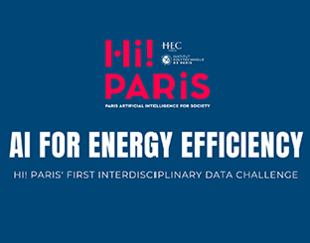
Over the March 12 weekend, the Hi! Paris Center further marked its interdisciplinary research commitments through an inaugural hackathon, the Center’s first Data/AI event baptized Hi!ckathon. 35 teams...
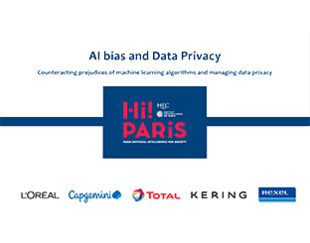
Six months after opening, France’s new scientific research hub, Hi! Paris, launched its first-ever series of webinars with an uncompromising debate on the challenges of bias in machine learning algorithms...
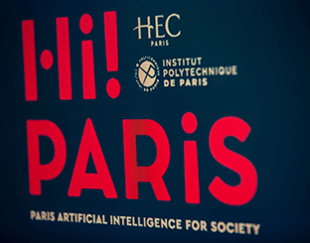
HEC Paris and the Institut Polytechnique de Paris ( IP Paris, which unites Ecole Polytechnique, ENSTA Paris, ENSAE Paris, Télécom Paris and Télécom SudParis) launched a new center devoted to Data Science...
